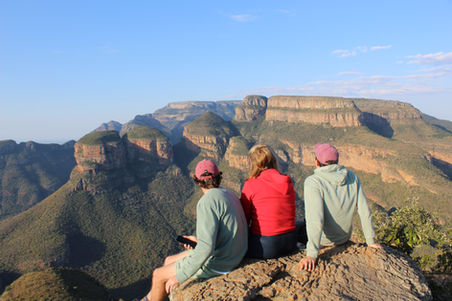
Marine Diving placement
Projects and training lead by pioneering divers and marine scientists of the coast of South Africa. Gain skills and have a lasting impact as you work with the team who discovered the coelacanth in 2000. A unique opportunity to contribute to conservation while learning from those with decades of practical experience!
Receive internationally recognised diving training and qualifcations, join marine ecology projects focused on research and monitoring. Develop skills and confidence in the water. Understand scientific methodologies and principles of marine conservation, discover the unique species and habitats.
A placement for the adventurous, explore coral reefs and meet species like turtles, whale shark or ragged-tooth shark. Ideal for a university students study abroad placements or as a valuble career boost!
Become a volunteer
Volunteer information


Marine diving placement project
Turtle monitoring and nesting
Loggerhead and leatherback turtles are found of the coast of South Africa. Help monitor their movements as you catch, record data and track these animals.
Help scientists understand these animals and to manage their ecosystem and implement policy more effectively.
You'll also help with beach nesting, record hatching data and ensure nesting sites are protected.

What will you be doing?
-
Recording data relating to health, sex and age
-
Monitoring animal behaviour
-
Capture and release of animals
-
Tracking and plotting animal routes
-
Using ID kits to identify individuals
-
Locating nesting sites
-
Checking for injuries or illness
-
Recording birth rates
There are several coral reefs at different sizes and depths of the coast of Sodwana Bay, South Africa.
These coral reefs are some of the few reefs on the planet that have not yet experienced coral bleaching.
Diving on these reefs, you'll monitor reef health, size, species composition to ensure their longiterm survival.
What will you be doing?
-
Survey and record reef size and health
-
Monitoring changes to the reef
-
Map and record reef structure
-
Record species composition
Coral reef surveying


Course qualifications
Diving is a licensed and regulated skill. At the start of your placement you'll receive training and complete a course qualifying you to dive to the international CMAS or PADI standards.
What will you be doing?
-
Complete a multi-day course
-
Study the theoretical elements of diving including principles of safety, equipment and diving techniques
-
Take part in practical training
-
Receive an accredited diving qualification

Fish surveying
Reefs are essential habitats for underwater species. Acting as nurseries for young fish or migratory stop of points for larger species like turtles, sharks or rays. These areas are rich in biodiversity and indicate health of an area.
Record target species to monitor biodiversity and marine ecosystem health.
What will you be doing?
-
Identify and record species
-
Monitor keystone species populations
-
Determine species health
-
Analysis trends in the ecosystem
-
Determine notable sites of migratory importance
Videography and film
The underwater world is often a minimally documented and recorded environment.
Help with marine videography and photography for better documentation and environmental engagement, shedding light and raising awareness.
What you'll be doing
-
Assist with film and image capture
-
Look for targeted species
-
Manage and assist with equipment preparation
-
Analysing recorded footage

Endangered species identification
There are numerous rare and endangered species that call these reefs home.
From nudibranchs (sea slugs) to sea horses, sharks or fish. Help record location, health, behaviour and even identify unique markings and characteristics for individual animal identification.
Recorded data is vitally important for marine ecologists to track and monitor these species.
What you'll be doing
-
Locating endangered species
-
Recording key data
-
Inputting data into databases
-
Recording individual characteristics for monitoring and tracking by ecologists

Sardine migration
The sardine migration (locally known as the sardine run) occurs from May into July and is caused by the cooler southern ocean water rising along the east coast of South Africa.
If you join us within those dates, you'll have the option to take part in this spectcale.
Join the billions of sardines in the water along with sharks, dolphins and whales for a migratory event with a larger biomass than the migration of the wildebeest in Tanzania!
What you'll be doing
-
Monitoring rare and endangered species
-
Inputting data into databases
-
Observing sardine populations

Equipment use and theory
There's a lot that goes into professional diving, you'll be able to build experience and confidence working at a diving center.
Learn how to maintain and store equipment correctly to ensure safety standards are met.
Understand the planning and preparation that goes into diving excursions. Gain transferable experience to start a career in diving.
What will you be doing?
-
Assist with storing and equipment maintenance
-
Understand the science behind nitrogen sickness and how to manage it
-
Health and safety with diving pre-checks

























